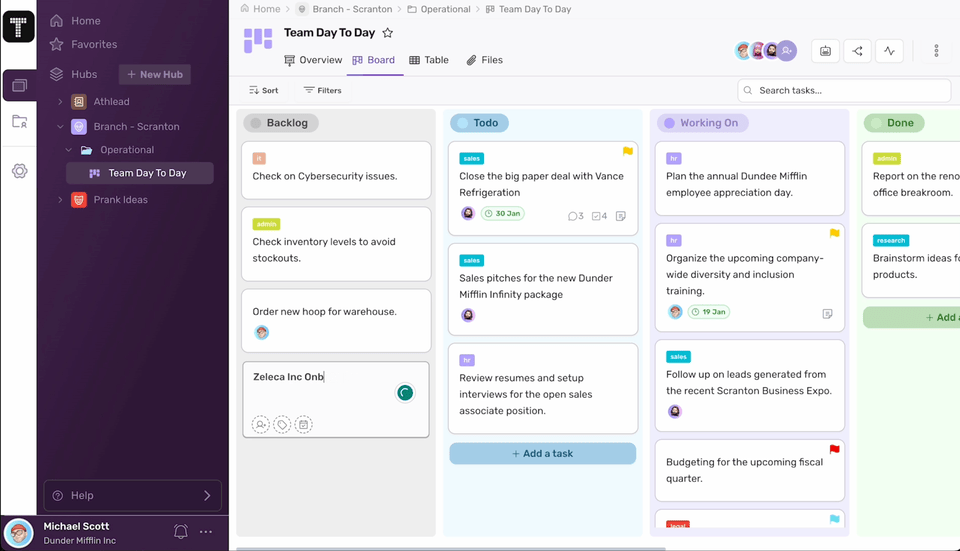Effective software development management is crucial for the success of any organization. With the increasing complexity and demands of software projects, it is essential to have a solid understanding of the basics of software development and its management to ensure smooth execution and delivery. This article will explore key concepts, building a strong software development team, implementing agile methodologies, utilizing project management tools, and quality assurance in software development.

Understanding the Basics of Software Development
The foundation of effective software development management lies in understanding the basics of software development. This involves having a clear understanding of the importance of software development management and the key concepts that drive successful projects.
Software development management plays a vital role in ensuring the successful delivery of software projects. It involves overseeing the entire development process, from planning and design to implementation and maintenance. Effective software development management enables organizations to align their software development efforts with business goals, manage resources efficiently, and deliver reliable and high-quality software products to meet customer needs.
When it comes to software development, several key concepts drive successful projects. These concepts include:
Requirements Gathering and Analysis
Before starting any software development project, it is crucial to gather and analyze the requirements. This involves understanding the needs and expectations of the end-users and stakeholders. By carefully gathering and analyzing requirements, software developers can ensure that the final product meets the desired functionality and addresses the specific needs of the users.
Software Architecture and Design
The architecture and design of a software system lay the foundation for its development. This includes defining the overall structure, components, and interactions of the system. A well-designed architecture ensures that the software is scalable, maintainable, and meets the desired performance requirements.
Coding and Implementation
Once the requirements are gathered and the software architecture is defined, the coding and implementation phase begins. This involves writing the actual code that brings the software to life. Skilled developers use programming languages and frameworks to translate the design into functional software components.
Testing and Quality Assurance
Testing is an essential part of software development. It involves verifying that the software functions as intended and meets the specified requirements. Quality assurance ensures that the software is free from defects and meets the highest standards of reliability and performance.
Project Management
Effective project management is crucial for the success of any software development endeavor. It involves planning, organizing, and controlling the resources and activities to ensure that the project is completed on time, within budget, and to the desired quality standards.
Each of these concepts plays a crucial role in the overall success of a software development project and requires careful attention and management. By understanding and effectively applying these concepts, organizations can increase the chances of delivering successful software projects that meet the needs of their users and stakeholders.
Building a Strong Software Development Team
Building a strong software development team is essential for the successful execution of software projects. The team’s composition, skills, and ability to collaborate effectively can significantly impact project outcomes.
Hiring the right talent
When it comes to building a strong software development team, there are several key factors to consider. One of the critical aspects is hiring the right talent. Identifying individuals with the necessary skills, experience, and cultural fit is essential for creating a cohesive and high-performing team. In addition to technical expertise, soft skills such as communication, problem-solving, and teamwork are also crucial for building an effective software development team.
Fostering team collaboration
However, hiring the right talent is just the beginning. Fostering team collaboration is equally important. Collaboration is key to the success of any software development team. Encouraging open communication, fostering a culture of trust and respect, and promoting knowledge sharing can enhance team collaboration and drive better project outcomes. Effective team collaboration enables members to leverage each other’s strengths, share insights and ideas, and collectively solve complex problems.
Supportive and inclusive team environment
But how can you foster team collaboration? One approach is to create a supportive and inclusive team environment. This can be achieved by organizing team-building activities, such as retreats or workshops, where team members can get to know each other on a personal level and build trust. Additionally, establishing clear communication channels and encouraging regular team meetings can facilitate the exchange of ideas and ensure everyone is on the same page.
Promoting knowledge sharing
Another important aspect of team collaboration is promoting knowledge sharing. This can be done through various means, such as creating a centralized knowledge repository where team members can document their learnings and best practices. Regular knowledge-sharing sessions, where team members present their work or share new technologies and techniques, can also foster a culture of continuous learning and improvement.
Strong leadership
Furthermore, effective team collaboration requires strong leadership. A leader who can inspire and motivate team members, set clear goals and expectations, and provide guidance and support is crucial for building a cohesive and high-performing software development team. A good leader also encourages autonomy and empowers team members to take ownership of their work, fostering a sense of responsibility and accountability.
In conclusion, building a strong software development team goes beyond hiring the right talent. It involves fostering team collaboration, creating a supportive and inclusive team environment, promoting knowledge sharing, and providing strong leadership. By focusing on these aspects, organizations can build teams that are not only technically skilled but also collaborative, innovative, and capable of delivering successful software projects.
Implementing Agile Methodologies

Agile methodologies have gained significant popularity in software development due to their ability to adapt to changing requirements and deliver value incrementally. Implementing agile practices can have a profound impact on software development management.
When it comes to software development, the traditional waterfall approach often falls short in meeting the dynamic needs of businesses. Agile methodologies, on the other hand, offer a more flexible and collaborative approach that allows development teams to respond effectively to changing business needs. By breaking down work into manageable iterations or sprints, agile practices enable teams to deliver software products that meet customer expectations.
Benefits of Agile in Software Development
Agile methodologies offer numerous benefits in software development management. These include increased flexibility, improved collaboration and communication, faster delivery cycles, early and continuous customer feedback, and higher customer satisfaction. With agile practices, development teams can adapt to evolving requirements, ensuring that the final product aligns with the ever-changing needs of the market.
One of the key advantages of agile methodologies is the improved collaboration and communication they foster. Agile teams work closely together, breaking down silos and encouraging cross-functional collaboration. This not only enhances the quality of the software but also promotes knowledge sharing and a sense of ownership among team members.
Faster delivery cycles are another significant benefit of implementing agile practices. By working in short iterations, development teams can deliver working software incrementally, allowing stakeholders to provide early feedback. This iterative approach helps identify and address issues early on, reducing the risk of costly rework and ensuring that the final product meets the desired quality standards.
Furthermore, agile methodologies prioritize customer feedback throughout the development process. By involving customers early and continuously, development teams can ensure that the software meets their expectations and addresses their pain points. This customer-centric approach not only improves customer satisfaction but also increases the chances of delivering a successful product that meets market demands.
Steps to Incorporate Agile Practices
Incorporating agile practices into software development management requires careful planning and execution. To successfully implement agile methodologies, organizations need to follow a set of essential steps.
Identify the right agile framework
The first step is to identify the right agile framework for the project. There are various frameworks to choose from, such as Scrum, Kanban, and Lean, each with its own set of principles and practices. Understanding the project’s requirements and team dynamics is crucial in selecting the most suitable framework that aligns with the organization’s goals.
Breaking down work into manageable iterations
Once the framework is chosen, breaking down work into manageable iterations or sprints is the next step. This involves dividing the project into smaller, more manageable tasks that can be completed within a specific timeframe. By doing so, development teams can focus on delivering incremental value and ensure a steady pace of progress.
Prioritizing requirements
Another crucial aspect of incorporating agile practices is prioritizing requirements. Agile teams need to collaborate with stakeholders to identify and prioritize the most critical features and functionalities. This helps ensure that the development effort is focused on delivering the highest value to the end-users and aligns with the overall project goals.
Fostering transparency and accountability
Fostering transparency and accountability is also vital in implementing agile methodologies. Agile teams should have clear visibility into the project’s progress, including the status of tasks, impediments, and dependencies. This transparency promotes trust among team members and enables effective decision-making based on accurate and up-to-date information.
Empowering the development team
Empowering the development team to make informed decisions is another key aspect of agile implementation. Agile methodologies encourage self-organizing teams that have the authority to make decisions related to the project. By empowering the team, organizations can tap into their collective knowledge and expertise, leading to better outcomes and increased ownership.
Continuous improvement
Regular retrospectives and continuous improvement are fundamental to the success of agile practices. Agile teams should regularly reflect on their processes and identify areas for improvement. By continuously learning and adapting, teams can optimize their workflows, enhance productivity, and deliver even greater value to the stakeholders.
In conclusion, implementing agile methodologies in software development management can bring about significant benefits. From increased flexibility and improved collaboration to faster delivery cycles and higher customer satisfaction, agile practices enable development teams to adapt to changing requirements and deliver software products that meet customer expectations. By following the necessary steps, organizations can successfully incorporate agile practices and unlock the full potential of their software development efforts.
Utilizing Project Management Tools
Project management tools play a crucial role in software development management, enabling teams to plan, track, and collaborate effectively throughout the development lifecycle.
Choosing the Right Software Development Tools

Choosing the right software development tools is essential for streamlining project management processes. There are numerous tools available for project planning, task management, version control, communication, and reporting. Selecting tools that align with the project’s needs, team collaboration preferences, and scalability requirements can significantly enhance software development management.
Maximizing Efficiency with Project Management Tools
Project management tools enable teams to optimize their processes, improve efficiency, and enhance productivity. These tools facilitate streamlined communication and collaboration, efficient task allocation, progress tracking, and real-time reporting. Effective utilization of project management tools can help software development teams stay organized, meet deadlines, and deliver high-quality software products.
Quality Assurance in Software Development
Ensuring software quality and performance is a critical aspect of software development management. Quality assurance practices help identify and address issues early in the development lifecycle, resulting in more reliable and robust software products.
The Role of Testing in Software Development
Testing plays a pivotal role in software development management. It involves verifying that the software meets the specified requirements, uncovering bugs and issues, and ensuring overall product quality. Testing should be performed at various levels, including unit testing, integration testing, system testing, and user acceptance testing, to minimize the risk of defects and ensure a stable software release.
Ensuring Software Quality and Performance
Ensuring software quality and performance requires a comprehensive approach that includes a combination of manual and automated testing, continuous integration and deployment practices, performance and security testing, and ongoing monitoring and maintenance. Quality assurance efforts should be integrated throughout the software development process to minimize the likelihood of defects and to deliver software products that meet or exceed customer expectations.
Effective software development management is the cornerstone of successful software projects. By understanding the basics of software development, building a strong development team, implementing agile methodologies, utilizing project management tools, and emphasizing quality assurance practices, organizations can effectively manage their software development efforts and deliver high-quality software products.










